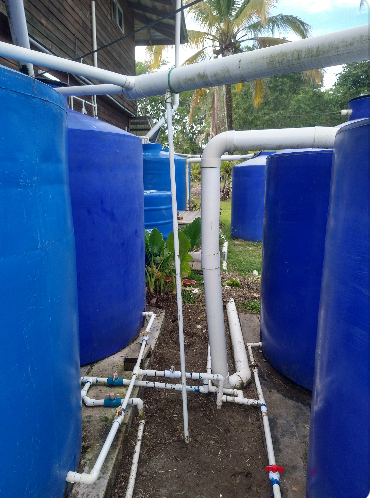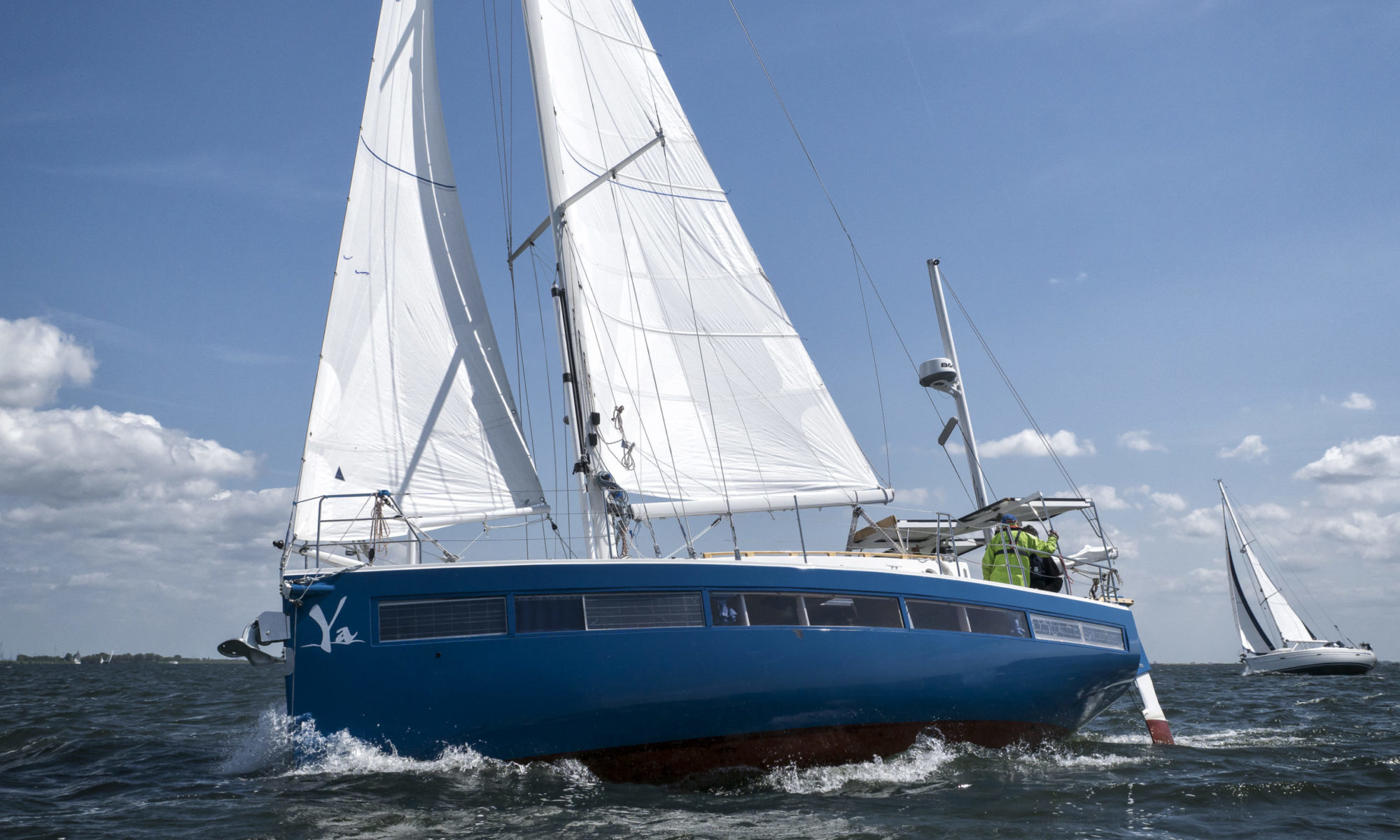Here and there one can pick up the first light consequenses of climate change. In Holland the summers become drier. A climate denier tried to be funny: “We are lucky, less rain when we are sailing.”
The Pacific side of Panama is warming up. The hottest 8 years of the past 100 years have all been the last 8 years. No matter El Nino or El Nina.
In Bocas del Toro,Panama, the archipelago where ‘Ya’ is now, the last three months it rained about half the normal volume. This is the second year that this happened.
There is no water supply network here. Every house has its own cistern or tank and catches the rain. The marina nearby has an extensive rain catching system and tanks. This is for potable water and It also has a groundwater network, for washing water. An abundant amount. Even Americans (the biggest consumers of the world) have enough of it.
But you see the first signs of the climate change.

This year the marina manager saw a first empty tank. It never happened. But even worse, the washing water became a bit salty. How come?
It is easy. There is hardly any rain, so the islands soil doesnot get fresh water influx. On the other hand, the sea level is rising. OK, it is only a bit, but it rises. It is enough to let the sea water flow further into the soil of the coast. Till the first water reaches the well of the marina – bingo!
This first sign of climate change is what we sailors here experience. We don’t care. We have tanks on board. We have water makers. Worst case is, we buy water bottles. Although the price has risen of these bottles, we will get away with it. But households with smaller tanks have a problem. You know who have the small tanks? The poor people. They buy the most bottles, and when they are the most expensive.
More than 50% of the climate change is caused by 10% richest people. That is us. You, me.
What about a moral appeal to you this Sunday, and you start to spend your money to live fossil free now?
